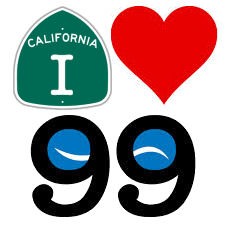 Well, it’s late Saturday night, and I’m home from my first Fringe show. That writeup will be tomorrow morning — tonight, it’s time to clear out the links so we can make some news chum stew. Are you hungry yet?
Well, it’s late Saturday night, and I’m home from my first Fringe show. That writeup will be tomorrow morning — tonight, it’s time to clear out the links so we can make some news chum stew. Are you hungry yet?
- Windows 10 is Coming. Quick, get a Dixie Cup. OK, so it’s an old joke and in bad taste. But we’re talking Windows here. Seriously, if you have a Windows 7 or Windows 8 system, you might see a new little icon so you can sign up to get the latest and greatest Windows when it is released on July 29. You’ll have a year to upgrade for free. So I’ve got a collection of articles that I found of interest on the upgrade. First and foremost, there are a number of features that will not work or will be removed when (if) you upgrade. Second, here’s an article on what to expect when the upgrade happens. Supposedly, you’ll need to do a clean install. What I haven’t seen yet is how well the upgrade process works for an in-place system, or seen a good list of what other older software will not work. My advice: You’ll have until July 2016 to request the upgrade. I’d suggest waiting a good two months and letting everyone else be the guinea pig.
- Apple, are you listening? Having talked about Microsoft, let’s now talk about Apple. This week brought the news that Microdia will be selling a 512GB micro-SD card for around $1000 (and you can expect the price to go down as others start manufacturing, plus there are reminders that the extra-capacity SDXC format allows for up to 2TB cards. OK, Apple, here’s your challenge. Do you want to win back all the people that loved the iPod Classic for their music? Do you want to prevent these folks from migrating to any of the other large capacity players? Here’s a simple answer: sell an iPod Touch that can take a micro-SD card up to 2TB. Not only can folks store their music, they have room for loads of apps, and loads of photos (they will be grabbed by photographers). Think of all the money you can make backing that up to the cloud.
- Water Water Everywhere. Here are three articles related to water. The first explores how to find the control room for the Bellagio fountains. There are loads of facts in the article; my favorite was the following: “The water they use for the fountains is a self-sustained source that used to be used for the old Dunes golf course before they took it down.” I had read in another book on Vegas that Wynn bought the land for the Bellagio because it had its own springs. Speaking of piping water, when you hear Budweiser, what do you think of? I know, watered-down beer. Did you know in emergencies that AB doesn’t add the beer (of course, how would you know?). Seriously, those of us in LA know that AB canned water during the big earthquake. Well, with the recent damage in Texas, they switched to canning water as well. Lastly, I found a real good collection of stories at the Times on drought gardening.
- A-One. A-Two. If you are security aware, you turn on two-factor authentication whereever you can. But how do you do it? Here’s an article with information on turning on two-factor authentication on over 100 sites. In particular, it links to a step-by-step guide to turning on two-factor authentication.
- Illusions in the Air. Here’s an interesting (well, to me) discussion of Avatar Airlines, an airline that is too good to be true. Just like the recently panned (and rightfully so) Bitter Lemons Imperative (plus one, two, three), here’s an idea that might have sounded good on a surface read, but when you dig deeper, it is fraught with problems. This really goes to show why you need to think an idea out thoroughly before you put it on the net. [I didn’t earlier today, and learned my lesson]
- A Burnin’ Issue. OK, Grammar Geeks. Here’s one for you (h/t Andrew D): Which unicode character should represent the apostrophe? The answer is easy to get wrong, as the Unicode committee did. They chose ’ (U+2019), which is RIGHT SINGLE QUOTATION MARK (as opposed to ‘ (single quote)), as opposed to ʼ (U+02BC), which is MODIFIER LETTER APOSTROPHE. Why is this significant? The former creates a word boundary; the latter does not. Now you know why your capitalization routine changes it’s to It’S.


 In the last few days, there has been a… discussion… over on one of my Facebook groups regarding a decision by
In the last few days, there has been a… discussion… over on one of my Facebook groups regarding a decision by